China's zero-Covid policy unlikely to ease after party congress
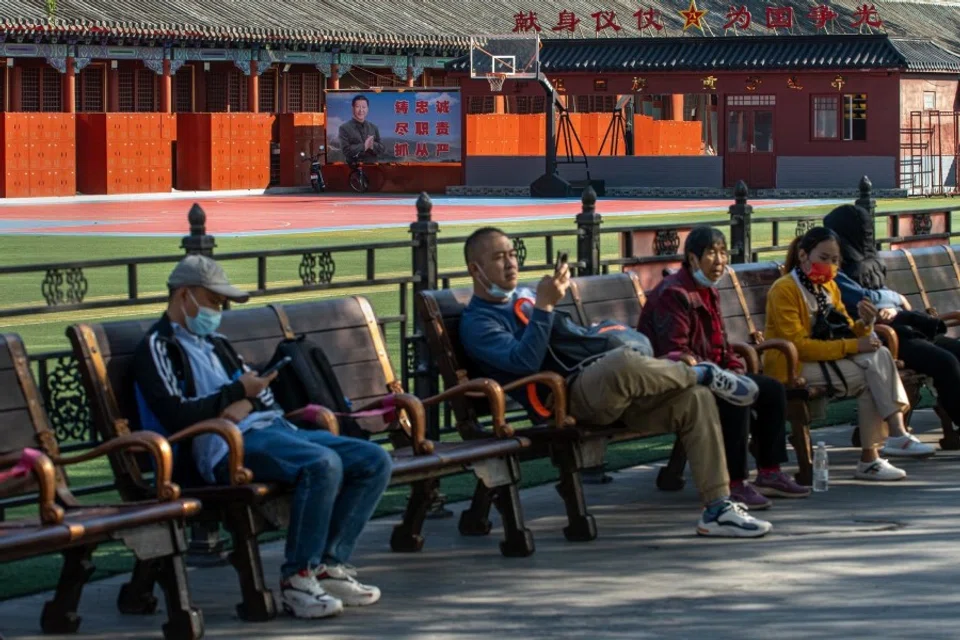
Over a meal, some friends and I got to talking about the Beijing Health Kit (健康宝) app. Everyone had never-ending grouses.
Born of the pandemic, the app is like a set of shackles on each person. It records the health information of everyone residing in Beijing - Covid-19 test results, vaccination records, even people's movements. In Beijing, one needs to scan and register on this app to ride a cab or enter a public place.
Since Beijing started regular testing every three days, the Health Kit has become an essential "pass", without which it is practically impossible to go anywhere.
It is also a very mysterious app that often sends pop-up notifications of being in contact with a "high-risk area, location or person".
Shackles on freedom of movement
Once the pop-up comes, the app freezes, and you inevitably get anxious. If you are in Beijing, it is easy to resolve - report to your residential community and complete rounds of testing within the specified days, and the pop-up usually resolves. But if you are returning to Beijing and see the pop-up, then it is troublesome. There is a hotline to call, but getting through is as difficult as winning the lottery. And if one appeals online, most of the time the reply is to delay coming into Beijing.
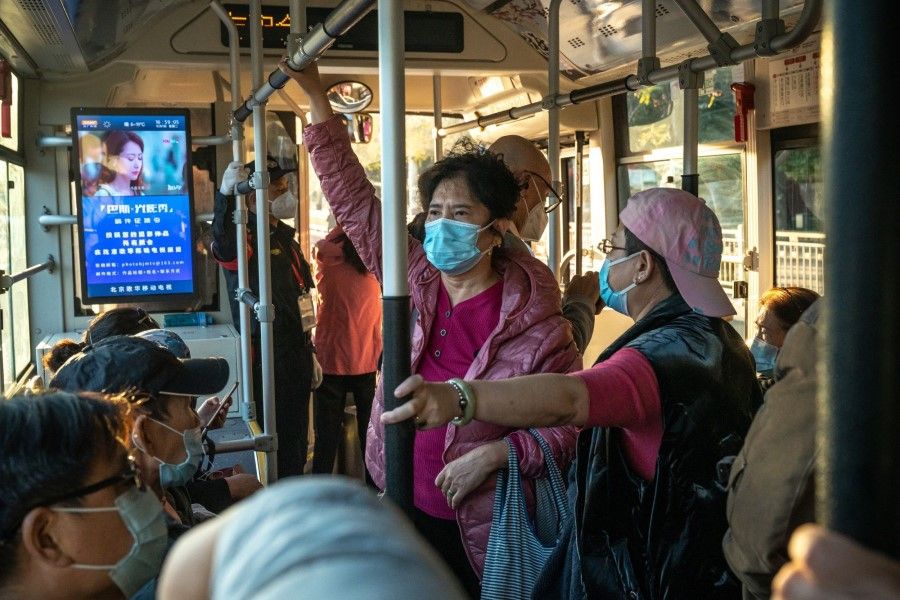
One friend who faced such a delay believes the Health Kit even has an uncanny "mind-reading" ability: "Every time you think about coming into Beijing, the pop-up appears." Everyone laughed in commiseration.
"We can forgo trips and travelling, but we have to go to work and earn money; we have to eat and go home." - Chinese netizen
But it was no laughing matter for those wanting to return to Beijing after the National Day Golden Week holiday. "Beijing Health Kit pop-up" was a top search on Weibo, even if it was soon removed. The error message in Chinese was: "In line with relevant laws, regulations and policies, this topic cannot be displayed." However, complaints about receiving the pop-up and being unable to return to Beijing continued to circulate on social media.
Many of those stranded outside Beijing were those waiting to return to Beijing to work after the long National Day holiday. One netizen said: "We can forgo trips and travelling, but we have to go to work and earn money; we have to eat and go home." Someone else sneered: "Beijing Health Kit should just change its name to Beijing Pop-up."
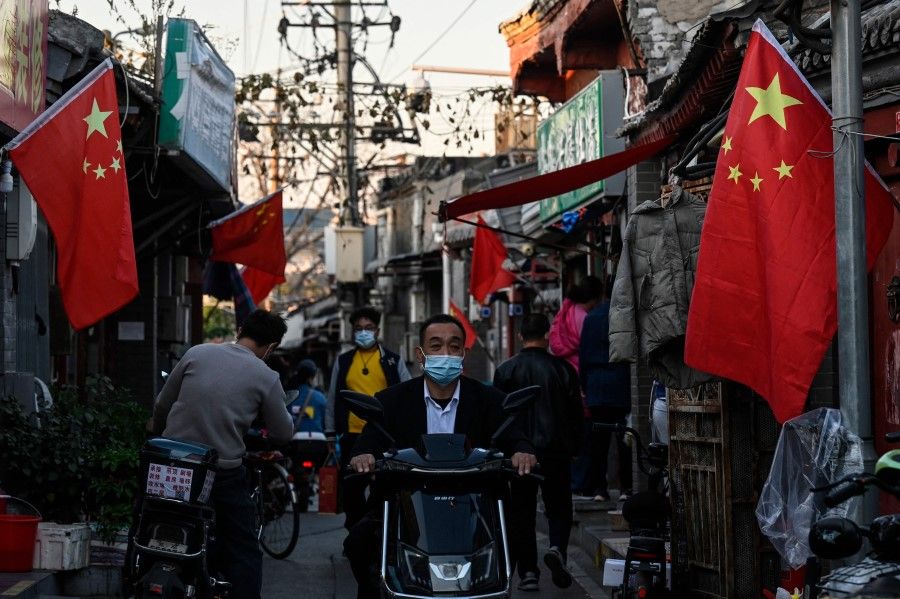
With outbreaks over China as the 20th Party Congress is about to begin, no one is daring to take it lightly, and pandemic prevention is back to high-pressure levels. Beijing is especially alert, and pandemic prevention is probably at its most tense over the past three years. At my gathering, an optimistic friend said: "Hang in there. It will probably be more relaxed after the 20th Party Congress."
... it also suggested that the anti-Covid fight should not be relaxed, lest past achievements go down the drain.
Will things change after the party congress?
Meanwhile, stringent anti-Covid measures have continued to disrupt work and life in China, making people more anxious. While many hope that the measures will be relaxed after the congress, they may be disappointed, judging by the slew of articles defending the "dynamic zero-Covid" policy in Chinese state media recently.
CCP mouthpiece People's Daily published an article by "Zhong Yin" (仲音) on 10 October saying that "lying flat is no way out" and that "persistence is victory". While the commentary cautioned against perfunctory, one-size-fits-all and over stringent pandemic measures, it also suggested that the anti-Covid fight should not be relaxed, lest past achievements go down the drain.
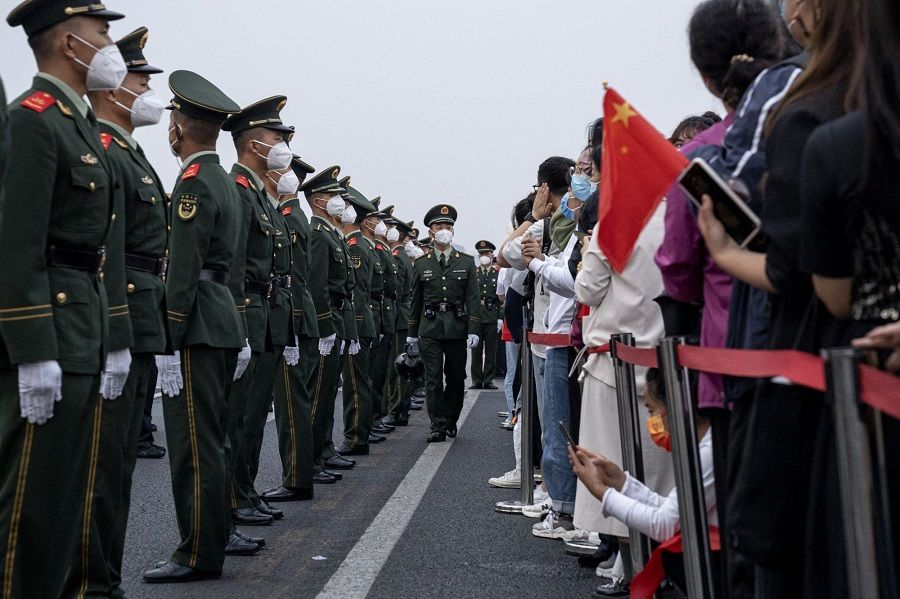
The next day, another article appeared in People's Daily under the same moniker emphasising that "the more we are in this situation, the more we must appreciate that dynamic zero is sustainable and must be adhered to". The commentary also pointed out that the country's dynamic zero-Covid policy has achieved a better balance between pandemic control and economic and social development, and allowed China to achieve "extremely low" mortality and "smooth" social and economic functioning.
Xinhua and Economic Daily also chimed in on 11 October. The former said that China's anti-Covid fight was not at the stage where it could "take a break" yet, and that the "dynamic zero-Covid policy was the best option at this stage based on the current Covid-19 situation in China". The latter urged the people to be more confident and patient about the country's anti-Covid policy.
Managing expectations
At the opening of the CCP's 20th Party Congress on 16 October, CCP General Secretary Xi Jinping is expected to deliver a political report. Analysts gauge that Xi will likely cite China's anti-epidemic experience and achievements in affirming the rationality and legitimacy of China's anti-Covid policy.
The wave of articles in Chinese state media is thus designed to align people's opinions and steps with controlling the current outbreak, thereby providing positive atmospherics for proclaiming the success of the anti-Covid model at the congress.
This implies that China's three-year anti-Covid policy is unlikely to be eased when the congress ends.
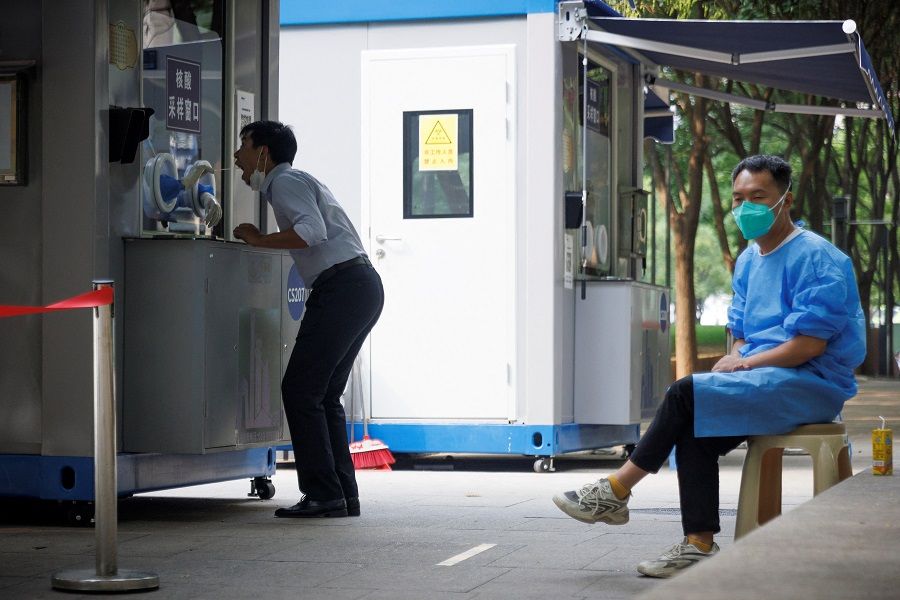
At the same time, as people have their hopes up for a relaxation of China's anti-Covid measures after the congress, these reports are also meant to temper expectations of policy adjustments. This implies that China's three-year anti-Covid policy is unlikely to be eased when the congress ends.
Based on what the state media are saying, the higher-ups have ascertained that China's dynamic zero-Covid policy is sustainable and the societal trade-offs are still bearable. Specifically, the impact on the economy is within their calculations and has yet to exceed officials' bottom line. In addition, people's emotions are still stable and not to the point of an alarming breakdown.
To what extent does such a judgement reflect the reality of Chinese society? How scientific is it, and how has it been influenced by politics? Where will the ceaselessly stringent anti-Covid policy eventually lead China? Only time will tell.
For Lianhe Zaobao's special reports on the 20th Party Congress, click here.
Related: A Chinese virologist's changing fortunes for speaking up against zero-Covid | China censors discussion on WHO's assessment of pandemic | When will China end its zero-Covid policy and open up its borders? | China's exorbitant cost of zero-Covid | Covid discrimination in China affecting work and everyday life
